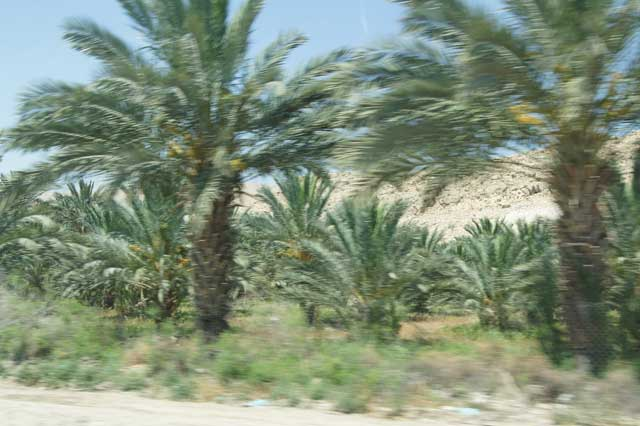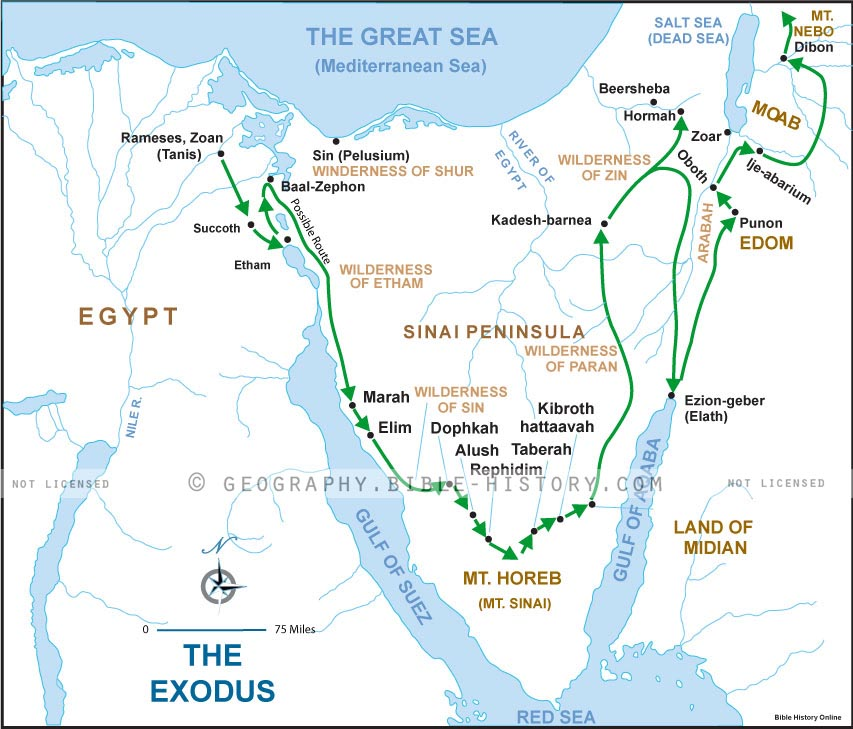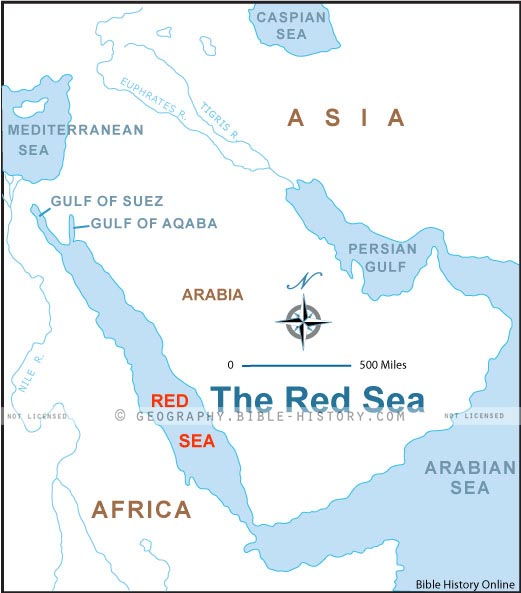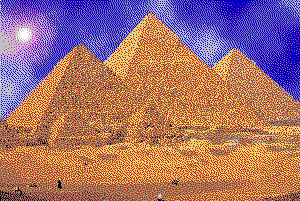25. the Lord showed him a tree, which when he had cast into the
waters, the waters were made sweet--Some travellers have pronounced
this to be the Elvah of the Arabs--a shrub in form and flower
resembling our hawthorn; others, the berries of the Ghurkhud--a bush
found growing around all brackish fountains. But neither of these
shrubs are known by the natives to possess such natural virtues. It is
far more likely that God miraculously endowed some tree with the
property of purifying the bitter water--a tree employed as the medium,
but the sweetening was not dependent upon the nature or quality of the
tree, but the power of God (compare
Joh 9:6).
And hence the "statute and ordinance" that followed, which would have
been singularly inopportune if no miracle had been wrought.
and there he proved them--God now brought the Israelites into
circumstances which would put their faith and obedience to the test
(compare
Ge 22:1).
JFB.
Outline
1 Moses' song
22 The people find water
23 The bitter waters at Marah are sweetened.
27 The people come to Elim where there were 12 wells of water.

Photo of Date Palms in the Jordan Valley
Important Topics for Bible Study
Moses and all of Israel praise the
Lord
fearful [in] praises
Israel arrived at the bitter waters of Marah
The people murmured against their leader Moses
Moses brings their cry before the Lord
The bitter waters are sweetened
He proved them
Jehovah Rapha
Israel comes to an oasis called Elim
They found 12 wells of water and 70 palm trees
Quick Reference Map

Map of the Possible Route of the
Exodus
(Click to Enlarge)
Ancient Customs
Song
singing
timbrel and dancing
Pharaoh's chariots and his host
habitation
prophetess
murmured
a statute and an ordinance
encampment
Ancient People
God, Moses, Miriam
the LORD
Geography
Egypt
Edom
Moab
the Red sea
the wilderness
Quick Reference Maps

Map of the Red Sea and Egypt
(Click to Enlarge)
The Old Testament

Exodus Resources
Moses
and the Exodus
The Giving of the Law
The
Tabernacle
The Wilderness Wanderings